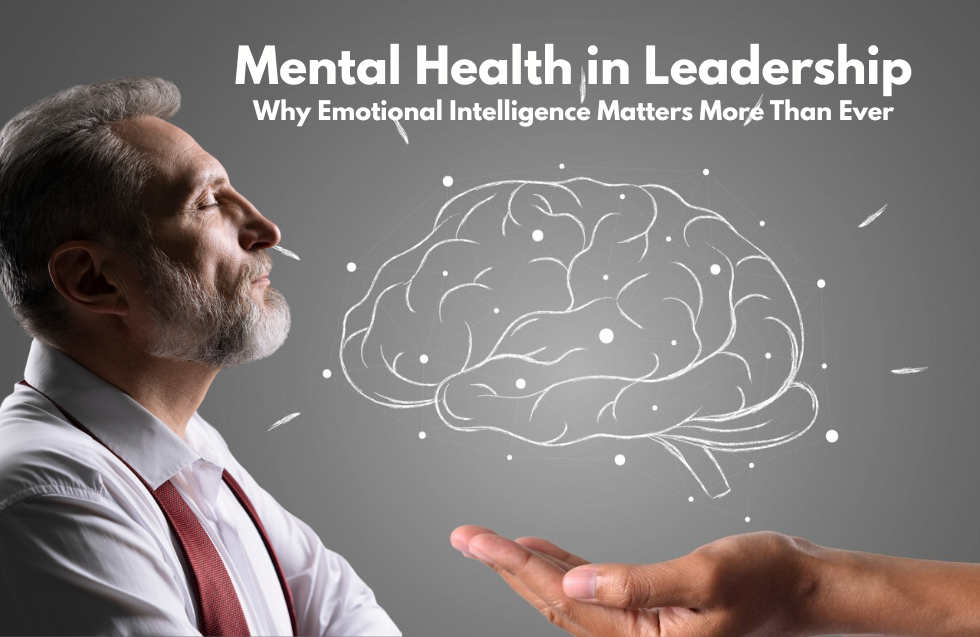Leadership has always demanded sharp decision-making, resilience, and confidence — but today, the mental health conversation has added an equally critical dimension: emotional intelligence. As addiction, burnout, and stress-related disorders continue to climb across industries, it’s no longer enough for leaders to focus solely on profits and performance. They must understand human behavior, emotional resilience, and the silent struggles — including addiction — that often hide behind polished job titles and professional masks.
In fact, the pressures of modern leadership, if left unchecked, can drive both leaders and their teams toward unhealthy coping mechanisms, including substance abuse. Emotional intelligence (EI) isn’t just a personal skill — it’s a vital tool for recognizing, managing, and even preventing mental health crises in the workplace.
What Is Emotional Intelligence?
Emotional intelligence refers to a person’s ability to recognize, understand, and manage both their own emotions and the emotions of others. Psychologist Daniel Goleman famously broke EI into five components:
- Self-awareness
- Self-regulation
- Motivation
- Empathy
- Social skills
For leaders, developing emotional intelligence is more than a soft skill — it’s an essential survival tool, especially when managing teams that may quietly struggle with addiction, stress, or trauma.
Why Mental Health Must Be a Priority for Modern Leaders
The world of business has grown more complex, fast-paced, and digitally connected, but human biology has not. Leaders who fail to address mental health — both their own and their team’s — risk fostering environments where addiction, anxiety, and burnout thrive.
1. The Link Between Stress, Leadership, and Addiction
High-pressure roles often lead to chronic stress, and for some, the temptation to self-medicate with alcohol, stimulants, or other substances can become overwhelming. This applies to both executives and employees. Leaders who prioritize mental well-being and model emotionally intelligent behavior help dismantle this toxic cycle, replacing silence and stigma with support and transparency.
2. Self-Awareness Prevents Unchecked Stress
Leaders with high self-awareness can recognize when their own behavior is shaped by stress or emotional fatigue. This insight allows them to set boundaries, seek help, and demonstrate healthy habits to their teams. Ignoring these warning signs can easily spiral into dependence on substances or unhealthy coping mechanisms.
3. Empathy Builds Safer, Addiction-Resistant Cultures
Empathetic leaders don’t just listen — they create psychological safety. This means employees are more likely to speak up when they’re struggling, whether it’s with workload, personal stress, or addiction. When leaders practice empathy, they lower the barriers to accessing support services, creating healthier and more resilient organizations.
4. Self-Regulation Shapes Healthy Decision-Making
In leadership, reacting impulsively under stress can fuel a toxic culture where others follow suit. Self-regulation — the ability to pause, reflect, and act calmly — helps leaders avoid knee-jerk decisions that can escalate pressure on themselves and others. This calmness often ripples across the organization, reducing stress and its associated risks, including addiction.
5. Motivation Rooted in Purpose, Not Perfection
A common trap in leadership is perfectionism, which can drive unhealthy work habits and emotional strain. Leaders with strong internal motivation — built on purpose rather than ego — are better positioned to maintain balance, avoid burnout, and promote sustainable growth over short-term wins.
6. Social Skills and the Power of Connection
A leader who cultivates strong relationships based on trust and open communication naturally reduces feelings of isolation among team members. Isolation is a known risk factor for addiction and mental health decline. Socially skilled leaders connect people, foster collaboration, and help create a community of support — essential ingredients for recovery-friendly workplaces.
The New Definition of Strong Leadership
In an era where mental health and addiction challenges touch every workplace, the strongest leaders are not those who pretend to be invincible — but those who model vulnerability, self-awareness, and compassion.
- Checking in on employees
- Setting realistic expectations
- Encouraging mental health days
- Creating addiction-sensitive policies
These practices are no longer “nice-to-haves” — they’re vital leadership behaviors that safeguard both productivity and well-being.
Conclusion: Emotional Intelligence Is the Foundation of Recovery-Friendly Leadership
As addiction and mental health issues continue to affect workplaces worldwide, leaders can no longer afford to view emotional intelligence as an optional leadership style. It’s a core competency that directly impacts both the bottom line and human lives.
Leaders who master emotional intelligence can create environments where people don’t need to rely on unhealthy escapes like substances to cope. They cultivate psychological safety, lead with empathy, and foster cultures that empower people to seek help, heal, and grow.
In the age of complex challenges, emotionally intelligent leadership isn’t just a trend — it’s the future.











